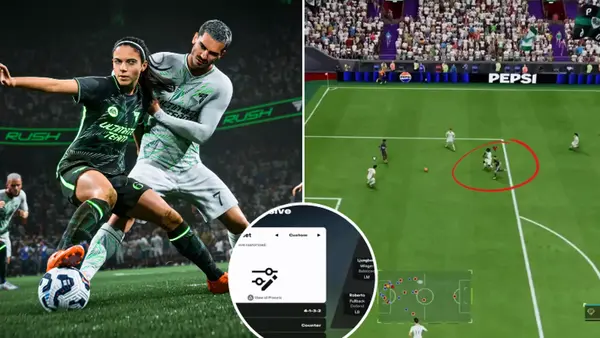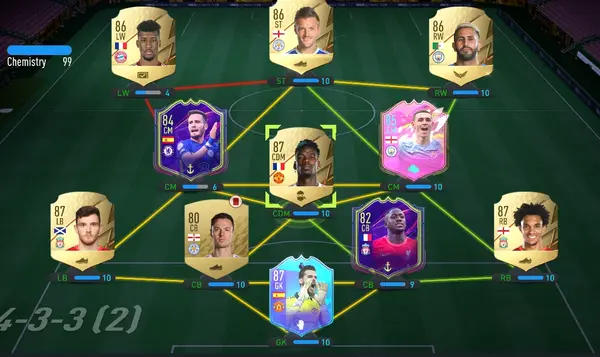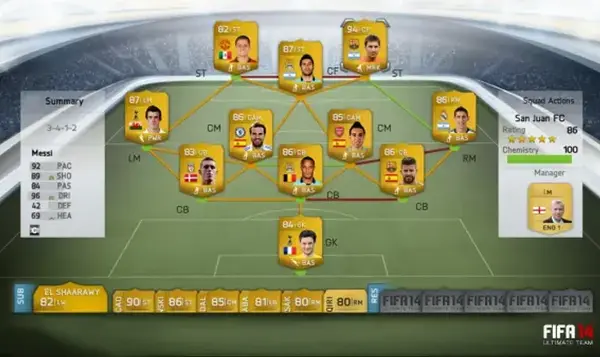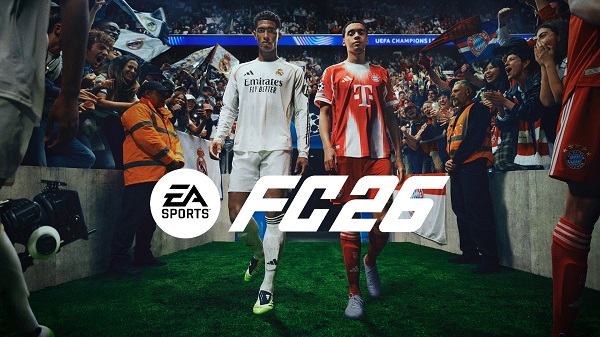Advertisement
Popular Now
Introduction
FIFA Ultimate Team (FUT) is one of the most popular game modes in the FIFA franchise, offering players the ability to build their dream teams using real-world football stars. However, its economic structure has often been criticized for promoting pay-to-win mechanics and fostering gambling-like behaviors. This article explores the specific economic challenges within FUT and their implications for players and the game's ecosystem.
The Early Structure of FUT
When FUT was first introduced, its economic system was simpler and less monetized.Earning Players Through Gameplay
- Players could earn coins by participating in matches and completing objectives.
- The transfer market allowed trading, creating a sense of achievement for those who invested time.
Limited Microtransactions
- Initially, microtransactions were less intrusive, focusing on optional packs without creating significant disparities.
The Introduction of FIFA Points
The introduction of FIFA Points marked a turning point in the game’s economy.Monetization of Packs
- FIFA Points became the primary currency for purchasing packs, creating a direct link between spending and acquiring players.
- This system incentivized spending to obtain high-rated players and compete effectively.
Pay-to-Win Dynamics
- Players who invested heavily in FIFA Points gained access to better players faster, creating a competitive imbalance.

The Gambling-Like Nature of Packs
FUT packs have often been compared to gambling due to their randomized rewards.Lack of Transparency
- Players purchase packs without knowing the odds of obtaining specific players.
- This lack of transparency has led to frustration and accusations of exploitative practices.
Psychological Manipulation
- The excitement of opening packs and the allure of rare players exploit psychological triggers, encouraging repeated purchases.
The Rise of Power Creep
Each FIFA iteration introduces new, higher-rated players, contributing to economic challenges.Constant Devaluation
- Older players and items lose value quickly, forcing players to continually invest in newer content.
- This cycle pressures players to spend more to stay competitive.
Seasonal Events
- Special events introduce unique cards with enhanced stats, creating a constant demand for FIFA Points.
Regional Pricing Disparities
The pricing of FIFA Points varies significantly across regions, exacerbating inequalities.Accessibility Issues
- Players in lower-income regions face higher relative costs for FIFA Points.
- Regional pricing disparities reduce the game’s accessibility and inclusivity.
Competitive Imbalances
- Players in wealthier regions can afford better teams, creating an uneven playing field in global competitions.
The Impact of Squad Building Challenges (SBCs)
SBCs have become a central feature of FUT, with both positive and negative implications.Encouraging Engagement
- SBCs provide creative ways to use surplus players and earn rewards.
- They add strategic depth and keep players engaged.
Inflating the Market
- High-demand SBCs often inflate the prices of required players, creating market instability.
- This dynamic disproportionately affects players who cannot afford to invest in FIFA Points.
Player Retention vs. Monetization
Balancing player retention and monetization is a critical challenge for FUT.Retention Strategies
- Daily and weekly objectives encourage regular play.
- Rewards for consistent engagement help retain non-spending players.
Monetization Pressures
- Aggressive monetization strategies alienate players who feel disadvantaged by pay-to-win mechanics.
- The reliance on microtransactions risks long-term player attrition.
Ethical Concerns
The economic structure of FUT raises ethical questions about its impact on players, particularly younger audiences.Gambling Allegations
- The randomized nature of packs has led to legal scrutiny in several countries.
- Some jurisdictions have introduced regulations to increase transparency or ban certain mechanics.
Financial Pressures
- The cost of building a competitive team can be prohibitive, leading to financial strain for some players.
- Stories of excessive spending have highlighted the need for better safeguards.

Proposed Solutions
Addressing these economic challenges requires systemic changes to FUT’s structure.Increasing Transparency
- Publishing pack odds would help players make informed decisions.
- Providing guaranteed rewards in packs could reduce the gambling-like nature of the system.
Implementing Spending Limits
- Voluntary or enforced spending limits could protect vulnerable players.
- Educating players about responsible spending would promote healthier gaming habits.
Reforming the Transfer Market
- Introducing controls to prevent price inflation in the transfer market would improve accessibility.
- Enhanced tools for monitoring market trends could benefit players.


















